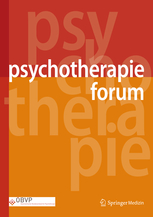This research study explores a peacecamp’s impact on prejudices and social attitudes among and within different national groups.
Since a decade of ‘Peace Is In Our Hands’ has been proposed by UNESCO, the occurrence of Peace Camps all over the world is increasing. Yet few of these plans were accompanied by research. The objective of this study was to explore a peacecamp’s impact on possible changes of prejudices and social attitudes among and within different ethnic groups. By using questionnaires, an empirical longitudinal survey on social attitudes was conducted at a total of three given times (34 camp participants and 83 controls). The ten-day peacecamp in 2005 took place in Rechberg, Carinthia, and was attended by male and female teenagers from three countries; in total, four groups with Austrian, Slovenian, Arab-Israeli, and Jewish-Israeli backgrounds. Strengthening of self-esteem along with a reduction of negative prejudices was the main contribution of the peacecamp. However, the different ethnic groups showed significant distinctions in development. Peacecamps represent a valuable means for peace education. The results from peacecamps should be reviewed far more than in the past so that the findings can be better applied for future camps.


